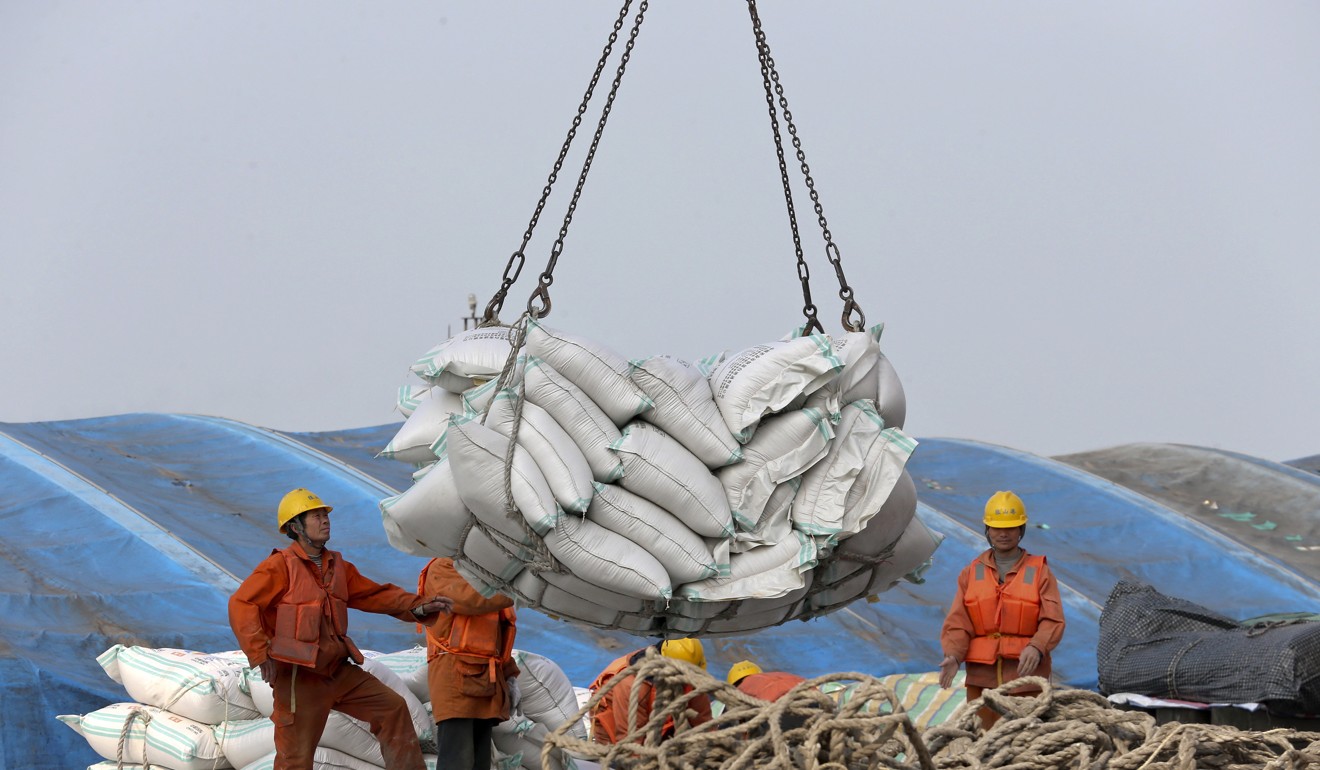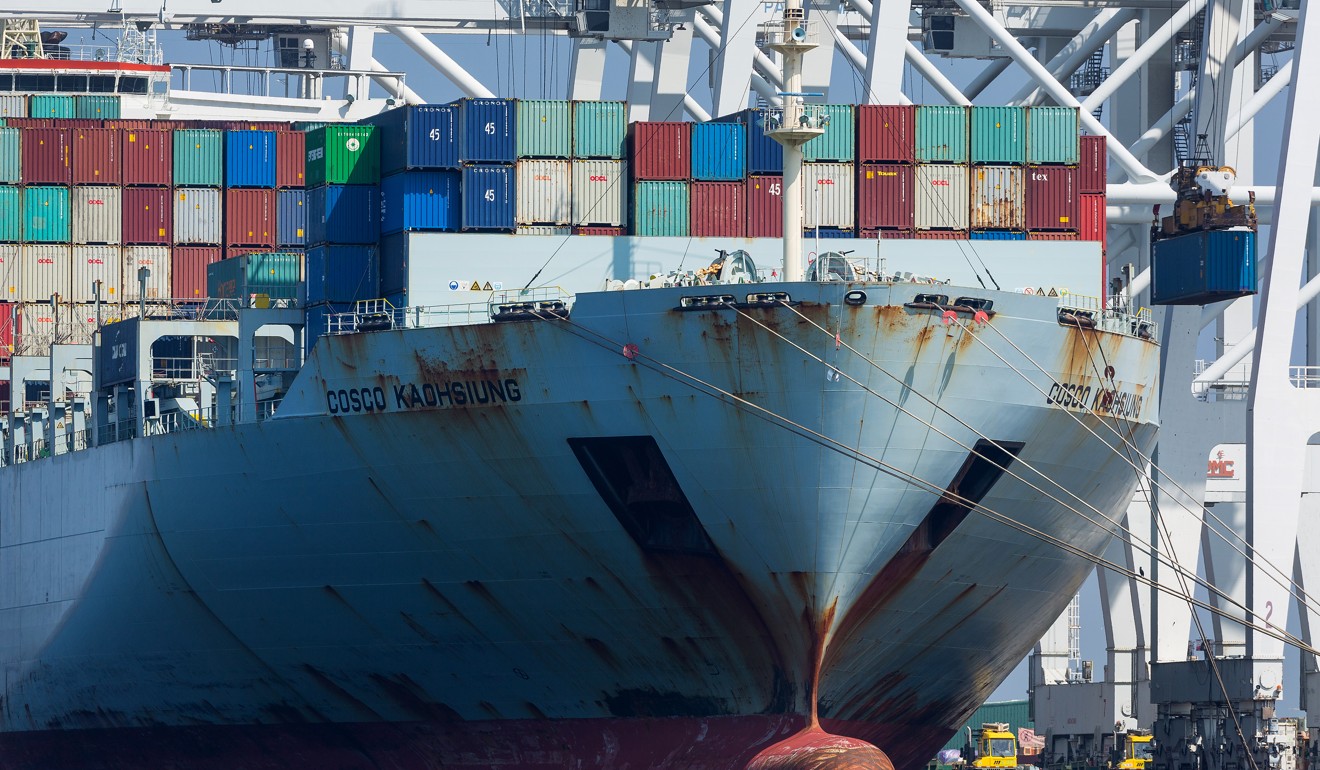
US Treasury Secretary Steven Mnuchin said to favour less sweeping investment curbs on China
Official’s deliberations on investment limits come as Washington and Beijing are locked in disputes over trade and China’s massive trading surplus with the US
The US Treasury Department wants President Donald Trump to rely on legislation to tighten scrutiny of Chinese investments in America instead of an executive move imposing sweeping new limits, according to three people familiar with the matter.
Meanwhile, separate sources said China has offered to boost purchases of American goods by about US$25 billion this year to fulfil President Donald Trump’s desire to shrink the US trade deficit with the world’s second-largest economy.
Treasury Secretary Steven Mnuchin has until the end of June to present to the president his department’s final recommendations on Chinese investment curbs. Trump directed Mnuchin to draw up the restrictions as part of an investigation into China’s alleged theft of intellectual property that also allows the imposition of tariffs.
Mnuchin and National Economic Council Director Larry Kudlow attended a meeting on Tuesday between Trump and Republican lawmakers, including Senate Majority Whip John Cornyn and Senataor Mike Crapo, chairman of the Senate Banking Committee.
At the gathering, Mnuchin and Kudlow planned to tout legislation drafted by Cornyn as an adequate way to clamp down on Chinese investment, according to the people, who requested anonymity to discuss internal discussions.
Mnuchin’s support of legislation restricting Chinese investments that imperil the United States’ national security is among his highest priorities, a Treasury spokesman said on Tuesday. The White House press office did not immediately respond to a request for comment.
Cornyn’s bill to overhaul the Committee on Foreign Investment in the US, which predates Trump’s recent trade crackdown, would expand the scope of foreign investments that are reviewed for national security concerns. The White House backed the bill earlier this year.
Bills to revamp the foreign investment committee are being pushed through both chambers of Congress. The House proposal goes as far as to single out China among a proposed group of hostile nations whose companies could undergo extra scrutiny for national security risks if they seek to buy stakes in US corporations.
But critics of Mnuchin’s approach say the new CFIUS legislation would be a weak substitute for the investment curbs the White House is considering in its trade dispute with China. As Treasury chief, Mnuchin is chair of the foreign trade committee.

Trump late last month announced that tariffs on US$50 billion worth of Chinese imports will be finalised by June 15 with investment restrictions due by June 30 and that both measures will be implemented shortly after those deadlines. That announcement came after Mnuchin declared the trade war “on hold” and said tariffs would not be imposed for now.
Three rounds of trade talks between the world’s two largest economies to date have not yielded progress and Trump’s renewed tariff threat was seen as a non-starter for China.
Two people familiar with the matter, who spoke on condition of anonymity because the negotiations are not public, said the Chinese government has started to quantify its commitment to import more US products as the talks progress.
In particular, China has shown willingness to step up purchases of US goods including crude oil, coal and farm products, according to the people briefed on the talks.

Chinese officials have indicated the nation is open to buying as much as US$70 billion in US exports, the people said. But much of that represents products the Asian nation has already promised to buy and in some cases the Chinese have not been willing to back their pledges with written contracts, they said. The US$70 billion offer was first reported by The Wall Street Journal.
Xi’s government is open to entering into legal contracts to obtain about an additional US$25 billion in goods from the US this year, according to the people. That falls short of the US$200 billion over two years that the Trump administration has demanded the Chinese government buy to address a yawning trade imbalance.
US goods exported to China last year totalled US$130 billion while Chinese imports to the US totalled US$506 billion. That left a US deficit of more than US$375 billion.
The Chinese embassy in Washington did not immediately respond to an emailed request for comment.

